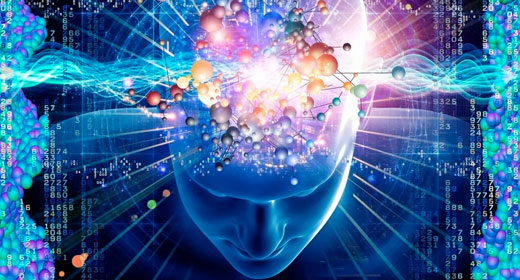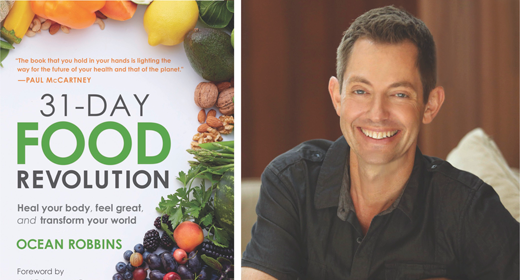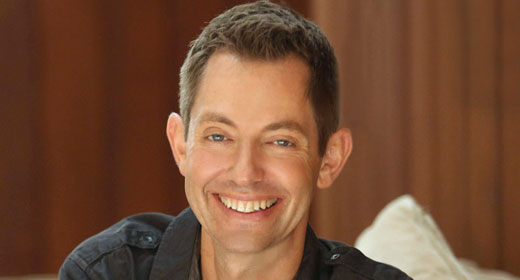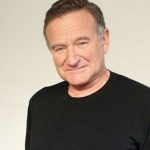By Deepak Chopra, M.D, FACP, and Menas Kafatos, Ph.D: We are so used to assigning consciousness only to human thought

that it takes some adjustment to see it as universal, or cosmic, applying at all levels.
But the label applied to mystics, saints, and sages, both East and West, really denotes those who have escaped the limitations of everyday perception. Their experiences supply abundant evidence – thousands of years’ worth – that the mind can look at itself and experience what consciousness is.
If you strip away all religious associations, higher consciousness is observational and experiential; the mind looks directly at itself rather than outward at things. Things constitute Maya in the Indian tradition, a word somewhat misleadingly translated as “illusion” but which works better if understood as “appearance” or “distraction.” It also implies impermanence. The world “out there” appears to be self-sustained, distracting us from the truth: Without consciousness, nothing is experienced, either “in here” or “out there.”
Cosmic consciousness, then, isn’t just real – it’s totally necessary. It rescues physics and science in general from a dead end – the total inability to create mind out of matter – and gives it a fresh avenue of investigation. The Higgs boson has gotten us a bit closer to a unified field theory – only a bit – but we are still far away from a full theory of quantum gravity. In many versions of superstring theories, the so-called M-theories, it is deduced that a vast number of parallel universes exist, all forming what is called the multiverse. But the multiverse cannot be an explanation of why this particular universe of ours is what it is. Having a vast number of universes emerging from empty space still does not explain why consciousness is what it is in our universe.
Quantum theory has reached the point where the source of all matter and energy is a vacuum, a nothingness that contains all the possibilities of everything that has ever existed or could exist. These possibilities then emerge as probabilities before “collapsing” into localized quanta, manifesting as the particles in space and time that are the building blocks of atoms and molecules.
Where do they exist? Where is the exquisite mathematics that we have at our disposal to be found? Some sort of “real space”? That of course makes no sense. The probability of an event (even an event like winning the lottery or flying on the day a blizzard strikes) only exists as long as there is someone to ask the question of what may happen and to measure the outcomes when they occur. So probabilities and other mathematical expressions, which are the foundation of modern quantum physics, imply the existence of observation. Countless acts of observation give substance and reality to what would otherwise be ghosts of existence.
Such a conception is made less bizarre once you realize that consciousness operates the same way. Babies are born with the potential to walk, speak, read, and do mathematics. It’s possible to locate which areas of the brain will eventually produce these abilities, but until then, they exist as pure potentials. If you are wedded to materialism, there must be a molecule (DNA) that functions as the source of speaking, walking, reading, and doing mathematics, but such an assumption falls apart very quickly, since: 1) It’s impossible to credit that DNA knows math, which would in essence give it a mind, and 2) Can we really believe that Shakespeare, and all other producers of words, get their inspiration from amino acids, enzymes, and proteins, which is what DNA actually produces?
It is more elegant and far easier to accept as a working hypothesis that sentience exists as a potential at the source of creation, and the strongest evidence has already been put on the table: Everything to be observed in the universe implies consciousness. Some theorists try to rescue materialism by saying that information is encoded into all matter, but “information” is a mental concept, and without the concept, there’s no information in anything, since information by definition must ultimately contain meaning (even if it is a sequence of 0’s and 1’s as in computer language), and only minds grasp meaning. Does a tree falling in the forest make no sound if no one is around to hear it? Obviously not. The crash vibrates air molecules, but sound needs hearing in order for these vibrations to be transformed into perception.
The entire universe is a matter of transformation whereby something is available to be turned into perception. We’ve proposed that consciousness is that something – if there’s another candidate, we’re not aware of one that can pass the acid test: Make it turn into thoughts, feelings, images, and sensations. Science isn’t remotely close to turning the sugar in a sugar bowl into the music of Mozart or the plays of Shakespeare. Randomness will not give you any of that. Your brain converts blood sugar into words and music, not by some trick of the molecules in the brain, since they are in no way special or privileged. Rather, your consciousness is using the brain as a processing device, moving the molecules where they are needed in order to create the sight, sound, touch, taste, and smell of the world.
The old bugbear about subjectivity being too vague, personal, and unreliable in comparison to the objectivity of facts and data needs to be squashed. Why can’t consciousness be precise and organized? It certainly is when the brain, which physically correlates to mind, is examined. Science itself is an activity in consciousness; therefore, degrading consciousness as being beneath science is a self-contradiction, leading nowhere. Another bugbear is the complexity and arcane nature of modern science. As physics stands, we can safely conclude that the universe is gushing out of the quantum vacuum right this moment with mathematical precision as described by the probabilistic rules of quantum field theory and, ultimately, the probabilistic rules of superstring theory and quantum gravity.
If that’s Greek to the lay person, it’s not because consciousness cannot be precise and technical. What’s at fault is simply that physics is highly specialized, and that’s not enough to raise it above everyday experience, which depends on the same mechanics of thought, perception, and transforming raw data into the world around us. The way to comprehend modern physical theory is with advanced mathematics which cannot be easily visualized. In fact, everyday experience has an advantage over advanced physics. The activity of the quantum vacuum and superstrings, the potential for creating a “bubble universe” out of nothing, the existence of a pre-created state that isn’t bound by space and time but can create space and time, the existence of “dark” matter and energy as constituting 96% of post-Big Bang creation – and much else in advanced physics – has been accepted because a set of data (and sometimes not even that) and mathematical theory both imply some hidden truth.
In everyday life, you get to experience the miracle of transformation that causes a three-dimensional spatial world and one-dimensional temporal world to manifest before your very eyes. The great advantage of experience is that it isn’t theoretical. Reality is never wrong, and all of us are embedded in reality, no matter what model we apply to explain it. Reality is waiting for us to creep closer to understanding its mysteries. In the meantime, it won’t falter or come to an end. Reality will remain our home, our source, and the ground state of our being far beyond the lifetime of the foreseeable universe.
Deepak Chopra, MD is the author of more than 75 books with twenty-two New York Times bestsellers including What Are You Hungry For? Join the weightlessproject.org to eradicate obesity and malnutrition. For more interesting articles visit The Universe Within
Menas C. Kafatos is the Fletcher Jones Endowed Professor of Computational Physics at Chapman University. He is a quantum physicist, cosmologist, climate change researcher and works extensively on consciousness and the above fields. His doctoral thesis advisor was noted M.I.T. professor Philip Morrison who studied under J. Robert Oppenheimer. Kafatos’ studies involved quantum physicists Hans Bethe, Victor Weisskopf and cosmologist Thomas Gold. He is co-author with Deepak Chopra of the forthcoming book, Who Made God and Other Cosmic Riddles. (Harmony)









































